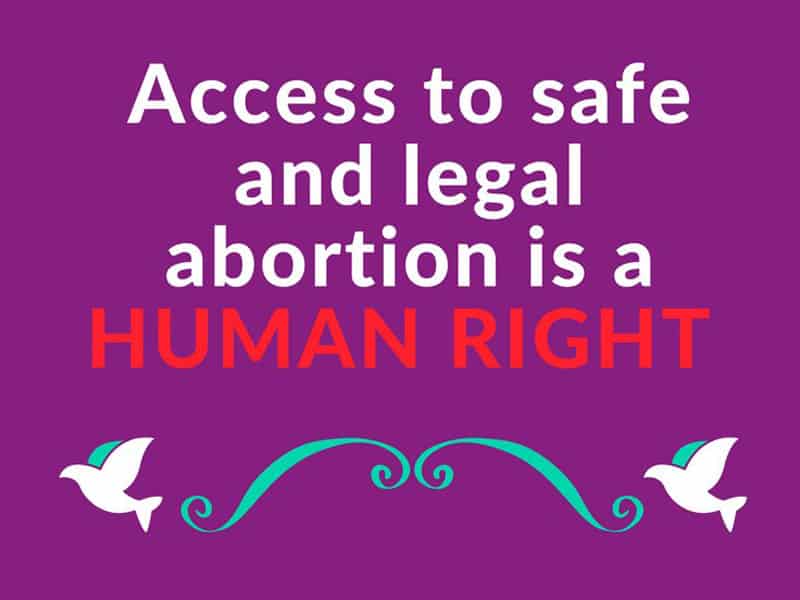
Accessing a safe abortion: do’s and don’ts
In Kenya, many women risk their lives with backstreet abortions performed by unqualified persons, even though safe procedures are available. The challenge is to make women aware of their options.
This article is a part of Love Matters’ global campaign, in partnership with WGNRR, #StepIntoOurShoes for access to safe and legal abortion.
According to the Guttmacher Institute, 2.4 million abortions were performed in East Africa in 2008, done illegally either at home or at makeshift clinics by non-professionals. These dangerous procedures result in 13 000 deaths annually (about 35 women every day), with many more suffering long-term health effects. What many don’t know: even though only some abortions are legal, all abortions can be accomplished safely.
Act quickly
If you need an abortion, the earlier you act the better. You can approach any Marie Stopes Kenya clinic and ask for guidance. You can also get in touch with the Aunty Jane Hotline or visit the Women on Web website.
Know your rights
In Kenya, abortion is not permitted unless, in the opinion of a trained health professional, there is need for emergency treatment, or the life or health of the mother is in danger, or any other written law permits it.
If someone performs an illegal abortion on a woman, they risk 14 years in prison. If you get caught trying to perform an illegal abortion on yourself, you can face up to seven years behind bars. Anyone who gives a pregnant woman the means to perform an illegal abortion may be imprisoned for three years.Understand that abortion is very safe
An abortion done by a qualified medical professional is among the safest of medical procedures (safer than delivery, for instance). As with any procedure, there is a small risk of complications – for abortions, these occur in two to 5 per cent of cases.
Seek a safe place
As stated earlier, a safe abortion is one performed by a trained medical professional using updated techniques in a clean facility. Any abortion performed outside these criteria should be seen as unsafe and avoided.
Know what to expect
The type of abortion will depend on the stage of pregnancy. During the first nine weeks, an abortion can be performed using tablets are a safe and effective means of abortion, with a 95 per cent success rate. After nine weeks, or if the tablets fail, a surgical procedure may be necessary.
Contribute to the changing culture
The stigma surrounding abortion, fear around its legal status and lack of comprehensive sexuality education help explain why so many unsafe abortions are performed in Kenya. By sharing what you know and by opening up and talking about sexual health, you do your part in helping to change the culture into one where safe and legal abortion options are available and easily accessible to all women.
Seek an abortion from anyone but a trained professional
Unsafe abortions are dangerous to your health and could lead to infections, trauma, infertility, and even death. Why risk your life when safe abortions are available?
Believe the myths
Have you heard that all abortions are dangerous or can cause serious long-term damage such as infertility? Don’t believe these myths! Although there is a small risk of complications, abortions performed by a trained medical provider are very safe and will not affect future pregnancies.
Attempt a medical abortion without advice
A medical (versus a surgical) abortion is a simple procedure done by taking pills. As long as a woman has undergone a medical examination to rule out complicated pregnancies and is less than nine weeks pregnant, a medical abortion is a safe, non-invasive method to terminate your pregnancy. However, do not take these pills on your own. Always first seek the advice of your doctor or online services such as Women on Web or Aunty Jane (links above).
Contribute to further stigma
The idea of a woman choosing to not be a mother is often stigmatised, particularly in cultures where a woman’s value and identity is limited to her role as wife and mother. Respect a woman’s decision if she is not ready to be a mother, or if she already has children and does not want any more. Getting rid of the stigma and broadening education are major steps towards decreasing the number of women who die from unsafe abortions every year.
Do you have more tips to share about accessing a safe abortion? Write them in comments or share via Facebook. If you have a specific question, please visit our discussion forum.

It’s okay
It’s okay
Thanks for your input.
Thanks for your input.
How do i know whether am…
How do i know whether am pregnant